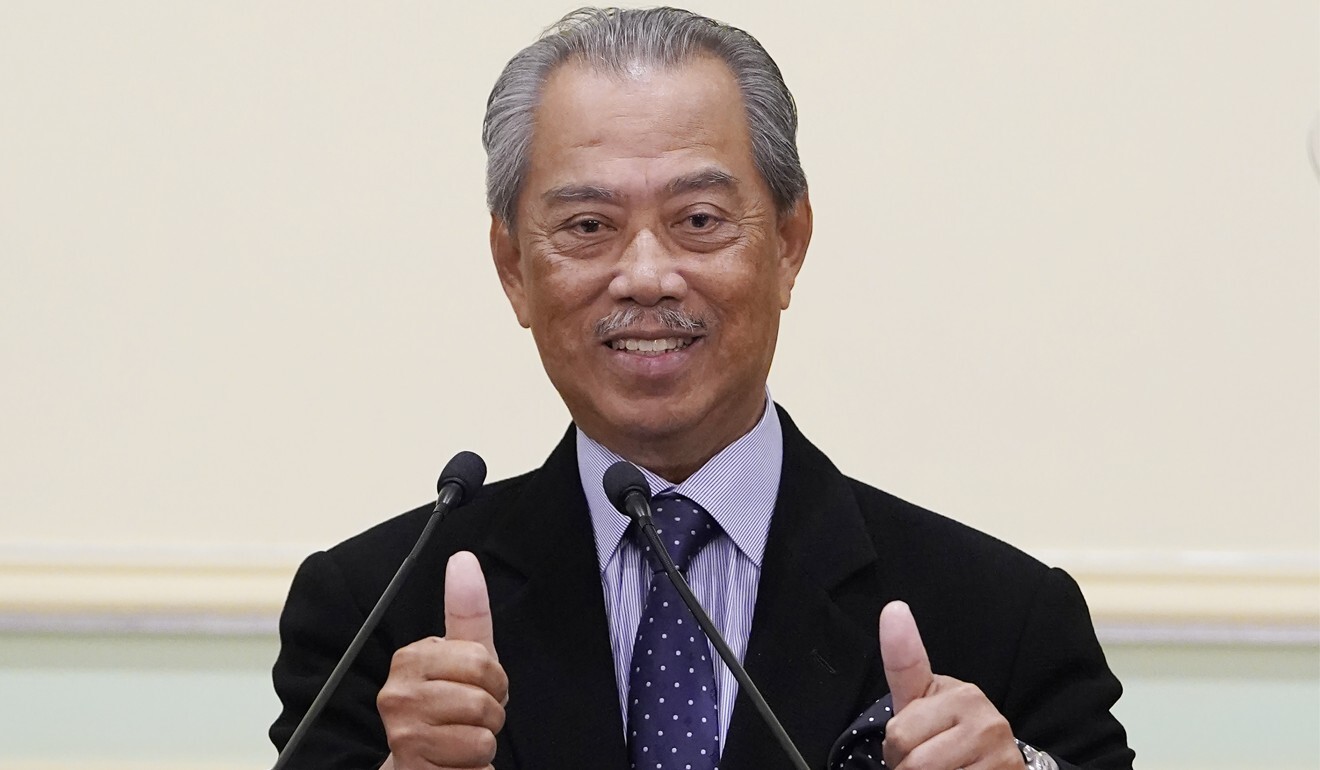
Malaysians raise white flags as hunger spreads under lockdown
- Community organisers say response to #benderaputih campaign shows the extent of economic despair among Malaysia’s lower-income families
- It comes amid accusations PM Muhyiddin Yassin’s government is more preoccupied with retaining power than protecting people’s livelihoods

Included in the 150 billion ringgit (US$36 billion) package were direct cash transfers to low- and middle- income groups, with the country’s poorest households set to receive some 1,300 ringgit (US$312) each.
To the dismay of community organisers, however, the first tranche of government aid will not be disbursed until August, even though many require immediate help. Underscoring the urgency has been an apparent uptick in suicides, with police revealing on July 1 that 468 people had taken their own lives in Malaysia over the first five months of the year – compared to 631 in the whole of 2020 and 609 the year before.
Desperate times
Shortages have become so severe in some Malaysian households that pregnant mothers have been subsisting on just one meal per day, forgoing food so that their other children have enough to eat, said Jean Vaneisha of youth advocacy group Challenger, which was involved in the white flag campaign.
Celebrities and supermarkets have responded to the #benderaputih call with offers of help, and crowdfunding efforts aimed at feeding the needy have also been launched, including by opposition lawmakers.
MPs aligned with Muhyiddin’s ruling Perikatan Nasional alliance have access to more funds for helping their constituents than those in opposition – a policy that has been decried as antithetical to the government’s pleas for unity in the midst of a crisis.
Kelvin Yii, an MP of the opposition Pakatan Harapan coalition for Bandar Kuching in Sarawak, criticised the government for not acting quickly enough to counter economic despair despite being able to rule by fiat since the emergency began.

He said Muhyiddin’s announcement of fresh economic aid would be of little immediate help as “the cash will only arrive in August” while in the meantime “people are actually already suffering and dying”.
His constituents had managed to weather earlier lockdowns by raiding their savings, Yii said, but with no end in sight to the crisis, a “sense of hopelessness” was creeping in – especially among poorer neighbourhoods.
“They say they don’t know what to do next as they are not allowed to work,” Yii said, adding that the current national lockdown appeared to be ineffective and unscientific.
Wong Chin Huat, a political scientist from the Jeffrey Sachs Centre on Sustainable Development at Malaysia’s Sunway University, said many Malaysians had become disillusioned with the lockdown that was first imposed as cases began surging in May. And a lack of clarity over which sectors of the economy are allowed to stay open is just part of the reason.
To add insult to injury, government politicians and well-connected people continue to flaunt [movement restrictions] and are going unpunished
“The daily new infection figure remaining at around 5,000 and the indefinite extension of the lockdown means that the sacrifice in closure of business and shortage of income will not be rewarded with relief down the road,” Wong said.
“This strengthens the public perception that the government is simply incompetent. To add insult to injury, government politicians and well-connected people continue to flaunt [movement restrictions] and are going unpunished, leading many to believe this is a ‘dual-class’ society.”
No surrender
Hartini Zainuddin, co-founder of Yayasan Chow Kit – a group that distributes food and other help to the needy in one of Kuala Lumpur’s poorer districts – said it was important to “let people help” each other with initiatives such as the #benderaputih campaign, especially when lives depended on it.
Yet some politicians such as Nik Abduh Nik Abdul Aziz have hit out at the campaign on social media, comparing it to an admission of defeat in the face of the pandemic.

In a June 29 Facebook post, the Malaysian Islamic Party (PAS) member – who is politically aligned with the ruling administration – urged those in need to “raise your hand in prayer to God”, adding “that is the flag of strength and optimism in the test of life. Don’t admit defeat when being tested”.
His comments sparked a backlash, with many pointing to the resilience Malaysians had already shown in weathering a mismanaged health crisis.
Further social media scorn was heaped on Zuraida Kamaruddin, a minister in Muhyiddin’s cabinet, when she took to Twitter to express her supposed support for the #benderaputih campaign.
“Ministers have power, are in the cabinet. Use those powers so the people don’t have to wave white flags,” said Syahredzan Johan, a member of the opposition Democratic Action Party, in response.
Malaysia to reconvene parliament following repeated calls by king
Wong, the political scientist, said it was difficult to forecast what might lay ahead for Malaysia now that the extent of economic despair had been exposed by the white flag campaign.
“How do you balance between economy and health, and weigh between which groups to help? These are not easy questions,” he said. “Sadly, not only does the prime minister appear not to have [answers], his political contenders such as opposition leader Anwar Ibrahim and foreign minister Hishammuddin Hussein also have not offered concrete alternatives.”
If you are having suicidal thoughts, or you know someone who is, help is available. For Hong Kong, dial +852 2896 0000 for The Samaritans or +852 2382 0000 for Suicide Prevention Services. In the US, call The National Suicide Prevention Lifeline on +1 800 273 8255. For a list of other nations’ helplines, see this page

